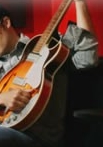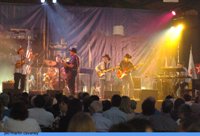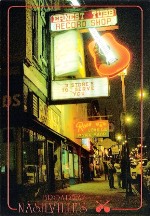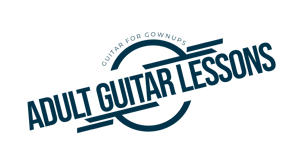
Bands tend to fall into two major categories. Cover bands and original bands. Yes, there are the ones that do a little of both but they typically lean more towards the “cover” side.
If you are contemplating joining or forming a band, one of your early decisions will be whether you want to play covers or originals. There are considerations for both courses of action.
Cover Bands
Cover bands fall into various categories based on the style of music and the type of venues they play.
There are bands that focus on playing rock, classic rock, blues, dance music, folk, country, oldies, beach music, variety and more.
There are bands that focus on venues such as wedding receptions, bars, nightclubs, country clubs, casinos, corporate, churches, restaurants and more.
Although most cover bands are comprised of “weekend warriors”, musicians with day gigs that play on weekends, there are a number of full time bands that play weddings, corporate gigs and casinos that make a good living.

Cover bands are usually focused more on making money. That is not to say that musicians in cover bands are only interested in making money. It’s just that cover bands tend to have a more business like approach. They book gigs, negotiate pay and sign contracts based on the dollars earned.
If you choose to play in cover bands keep in mind that the audience expects to hear covers. Usually they want to hear the songs they are familiar with. The songs they know and can sing along with. Most aren’t interested in hearing some obscure cut from the “B” side of a long forgotten album.
They want to hear “Sweet Home Alabama”, so be prepared to play it for them, even if it makes you nauseous!
Original Bands
Many musicians that opt to play originals consider themselves to be “purists”. Playing music for the sake of “creating” music rather than copying the music of others.
Original bands, like cover bands, can very often be categorized by genre as well as the level they are at.
The “entry level” original band is usually comprised of younger players that have decided to get together and “make some music”. They could very well be a “garage” band or “basement” band and do not play anywhere else other than for friends and family.
The next level is the original band that decides to leave the garage and “take it to the streets”. If the band members are under the legal drinking limit, they may play teen venues, skating rinks and private parties – often times for free. They may also piggy back on a multiple band show in a local, teen oriented venue, and agree to split the door with other bands.

The next level is a band that has recorded an album or two and has developed a local or regional following. There are more gig opportunites available to a band at this level, and a little more money to be made.
The top level is, of course, an original band that gets signed to a label deal and is out touring the concert circuit. Although this is the ultimate aspiration of most musicians choosing the original route, the intensity of the “business end” of the music at this level can leave many a “purist” disillusioned.
If playing originals is your calling then be prepared for some realities. There are fewer gig opportunities available to the original artist. Most club owners pay bands according to the crowds they draw, and, unfortunately, your average club patron just wants to hear the songs that they have spent all day listening to on the radio.
In an original band you may have to play a lot of free gigs just to get your name out there. Recording an album is a must so you will need to figure out how to pay for an album if you are playing free gigs.
Many audiences are simply not receptive to original music so be prepared to get requests for “Freebird”. If your band is serious, you may consider moving to a major music center and start knocking on doors.
Original bands that develop a strong regional following will eventually get the notice of A&R folks and can lead to bigger things.
Which Way to Go
Although some purists might not agree, there can be a high level of satisfaction in playing cover songs and seeing the positive reaction of an audience.
Conversely, with an original band, you are in control of your musical destiny. You call the shots and only play songs that mean something to you.
There are bands that are “hybrids” of the two. Bands that lean heavily on playing covers, yet squeeze in a few originals throughout the course of a show. This tends to work well by “priming” the audience up with their favorite covers before sneaking in an original. Many times they don’t even know that they are listening to an original.
Cover band or original band – which one is right for you? Everyone is different so it’s hard to say for sure, just beaware of the ups and downs of either choice. Focus on making good music and everything else has a way of working itself out.
Please do not hesitate to contact us with any questions!



